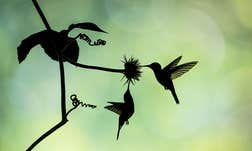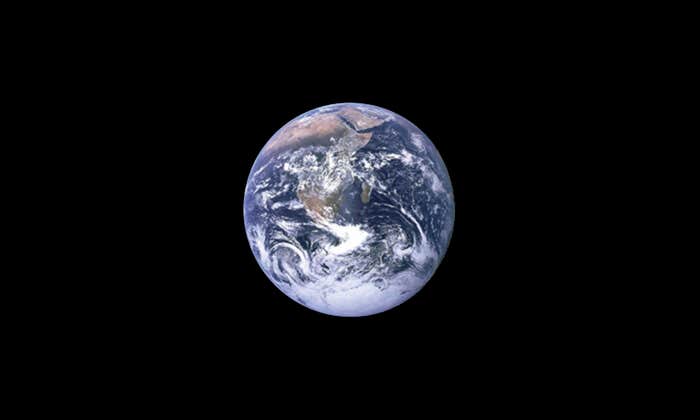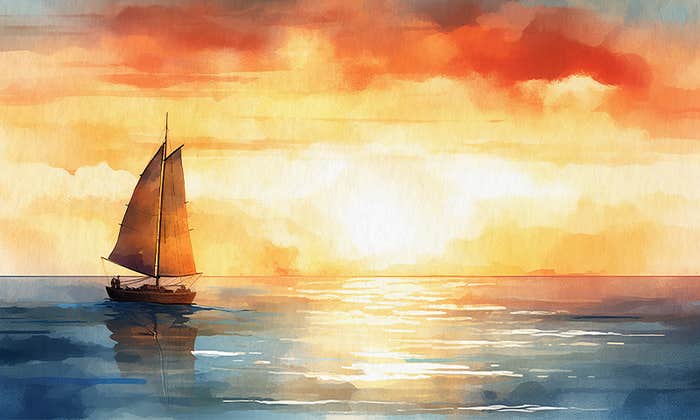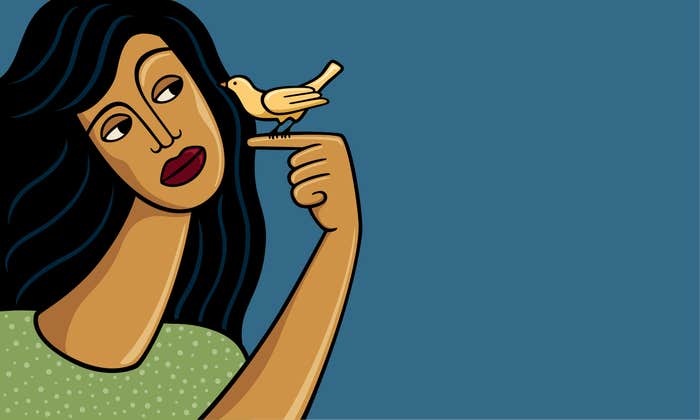In his Theaetetus, Plato remarks to Socrates: “This pathos is proper to the philosopher: It is the thaumazein. And philosophy has no other point of departure than this.” The word, which contains the root thauma, the same that appears in thaumaturgy, has often been translated as “wonder.” Philosophy is born out of amazement mixed with the curiosity that arises from facing something inexplicable that fascinates and transcends us. Aristotle writes explicitly that, beginning by asking the simplest questions, humanity has come to wonder about ever more complex things, ending up by investigating the moon, the sun and the stars, and by asking how the very universe itself came into being.
The sense of wonder we get when looking at a star-studded sky is a powerful one, even today an intense and even emotional experience, connecting us perhaps with an echo of that ancient amazement shared by thousands of generations before us. But perhaps too this feeling is not enough to understand the origin of this deep-seated, urgent, primordial, almost innate need to seek an answer to the big questions.
The theme was reprised by Emanuele Severino, a contemporary philosopher, who insisted emphatically on translating thauma as “wonder mixed with anguish.” In this way we recover the original significance of the word, and the knowledge would act as “an antidote to the terror provoked by the annihilating event that comes out of nowhere.”
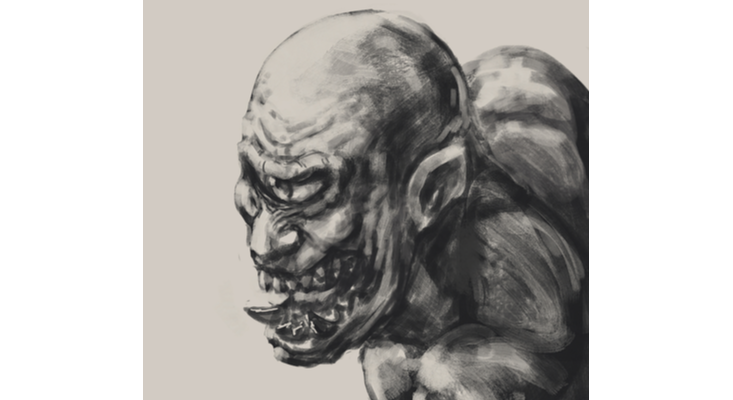
In fact, the term was also used in this way by Homer, who speaks of thauma when describing Polyphemus, the one-eyed giant who dismembers and devours the unfortunate companions of Ulysses. In this case the link with anguish, implicit in the word, is more self-evident. The very sight of the mythical Cyclops, a creature of colossal size, causes both amazement and terror. The giant, symbol of the untamed force of nature, provokes a sense of wonder at his incredible strength, and at the same time a profound anguish due to our sense of vulnerability and irrelevance. The unleashed forces of nature, an erupting volcano or a terrible hurricane, simultaneously both fascinate and terrify, because they smash our world to pieces or engulf us in an instant. In this bigger picture the role played by such small, fragile beings as we are, continually exposed to suffering and to death, is completely insignificant.
This is where the narrative, the explanation—whether mythical or religious, philosophical or scientific—at that precise moment comforts and reassures us, giving order to an uncontrollable sequence of events and in this way protecting us from anguish and terror. This narrative, in which everyone has a role and everyone plays his part, gives meaning to the great cycle of existence. We are reassured because we feel protected, and our fear of death fades. We remain fully conscious that for us, everything will come to an end—and will do so rapidly compared to the great temporal cycles of evolution in the material structures that surround us. But knowing that the whole obeys an order described in our narratives, we are reassured.
Culture, the awareness of one’s own deepest roots, is a kind of superpower.
For millions of years, humanity had to come to terms on a daily basis with the harshness of life. Only a few decades ago, and even then for only a part of the world’s population, did this experience of extreme fragility and total precariousness subside. But in the depths of our soul we still feel that ancestral anguish. We are all like Leo, the child protagonist of Melancholia, who when faced with the inescapable catastrophe that is about to overwhelm the Earth, seeks protection and consolation. He needs someone to say: don’t be afraid, nothing will happen to you. He finds this in the person of his aunt Justine, someone who until now has suffered from deep depression, but who when the moment of crisis arrives, when all the sane and normal people are losing their heads, behaves with the most lucidity, and finds resilience enough to maintain her humanity. The small tent in which she seeks refuge with the child will not protect her from the imminent disaster, but until the last moment before the collision, within the warm embrace of his aunt’s arms, listening to her calmly voiced story, the child feels safe.
Art, beauty, philosophy, religion, science, in a word, culture, are on one level our magic tent—and we have needed it, desperately, since time immemorial. In all probability they were born at the same time, they are different modalities in which symbolic thought is articulated. It is not difficult to imagine that rhythms and assonances in the use of words would have facilitated the mnemonic transmission of the story of origins, and that this is how song and poetry developed; that something similar may have occurred with signs and symbols depicted on the walls of caves, with increasingly sophisticated formal perfection; or that in the rites and the ceremonies that accompanied moments of mourning, regular sounds would accompany the rhythmic movement of the body or the song of a wise man or shaman. Science is part of this story; it is no accident that episteme and techne go together, knowledge and the capacity to produce utensils, artefacts, machines.
It was no accident either for the Greeks that techne, the root of “technique,” also indicates the common ground between the artisanal and the artistic, and this is why when flint bifacials are produced, the technical requirements of having at one’s disposal a sharp and easy-to-handle cutting tool are interlaced with the aesthetic ones of producing something symmetrical, fine, perfectly balanced—in a word, beautiful, like an art object.
These exigencies seem to have constituted something irrepressible for all the human groups that have trod the Earth for millennia. Even the most isolated of remote tribes, found from time to time in some forest in Borneo or the Amazon, have developed their own rites, a specific form of artistic expression and their own symbolic universe, all backed by an overarching story of their origins. Without such narratives, not only would it not be possible to build great civilizations, but even the most elementary social structures would fail to survive. This is the reason why all human groups on our planet are characterized by strong cultural traits.
Culture, the awareness of one’s own deepest roots, is a kind of superpower that guarantees a good chance of survival even in the most extreme conditions. Imagine for a moment two primitive social groups, two small clans of Neanderthals that live isolated from each other in the frozen Europe of that era. Now suppose that by chance one of these groups develops their own distinct vision of the world, cultivated and perpetuated over generations through rituals and ceremonies, and perhaps visually represented in cave paintings, while the other group fails to do so, evolving that is without developing any sophisticated form of culture. Now let’s suppose that a disaster strikes both groups: a flood or a period of cold even more extreme than usual, or an attack by ferocious beasts that leaves only a solitary living survivor. This last man standing, in the case of both groups, will have to overcome a thousand dangers, face every kind of privation, perhaps migrate to other zones and even evade the hostility of humans. Which of the two will show the most resilience? Who will have the best chance of surviving?
A creation story, a narrative of origins, gives you the strength to get up when you are knocked down, the motivation to endure the most desperate circumstances. Clinging to the blanket that gives us protection and an identity, we find the strength to resist and to carry on. To be able to place ourselves and the others in our clan in a long chain of events that began in a distant past gives us the opportunity to imagine a future. Whoever has this knowledge can place in a wider framework the terrible vicissitudes of the present, giving sense to suffering, helping us to overcome even the most terrible tragedies.
And that is why we are still here, thousands of generations later, to give value to art, philosophy, science. Because we are the inheritors of this natural selection. Those individuals and groups most equipped to develop a symbolic universe have enjoyed a significant evolutionary advantage. And we are their descendants.
The unleashed forces of nature simultaneously both fascinate and terrify.
We should not find the power of the symbolic and the strength of the imagination surprising. The condition of being social animals is something more profound and intrinsic than the mere fact that we live in organized groups of individuals.
In the last few years, throughout the world, very ambitious projects have been initiated to study the functioning of the human brain. They are well financed and resourced multidisciplinary initiatives, employing thousands of scientists. In many cases, in order to understand in detail some of the basic mechanisms, nets of electronically simulated neurons and their interactions have been produced. All of this is very useful for understanding certain dynamics of the functioning of the brain. So why do the very same neuroscientists that welcomed their development tell us that it would make no sense to expand these elementary structures in order to create an artificial brain?
It is not simply a question of overcoming some major technical difficulties: Our cranium hosts almost 90 billion neurons, each of which is capable of establishing up to 10,000 synapses with its neighbors. The question is a deeper one. Even if we were able to construct an electronic device as complex as this, capable of technically reproducing the structure of our brain, it would still fail to be a human one. Still missing from the faithful copy would be an essential ingredient, immeasurably more difficult to reproduce in electronic form. What would be missing is the interaction with other human brains, mediated by language, the body, and emotional relationships. In other words, one becomes human through the perceptions of others, in their eyes and in emotional exchanges with them, by interacting with other humans in relation with us in the social group.
The pliant brain of a newborn infant is shaped in relations with the world mediated by the adults who take care of her, starting with the maternal gaze. A baby looking into the eyes of the person who is feeding her modifies her synapses on the basis of the reactions that occur in their relationship. The thing that we call the human brain is born from the interaction between this plastic system, capable of adapting and being shaped by the stimuli that come from outside it, and by a set of relationships that are established with the rest of the social group: relationships nourished by hopes and desires, beginning even before the embryo is established in the body of the mother. The new being is in dialogue with the aspirations of the parents, which precede birth, and comes into contact with the past and the humans who have come before it. She is projected toward the future through the phantasmagoria that builds the small social group surrounding the figure of the new arrival: Grandparents or parents and other family members discern resemblances that link back to ancestral tales in which old fears and new expectations arise. No electronic device could possibly reproduce all of this.
Science constantly advances, and it changes our way of seeing and describing the world.
In order to confirm the importance of what we are attempting to describe, we need only think of those instances of very young children lost or abandoned in wild places and raised in the company of animals. They have brains that to start with are structurally identical to those of their contemporaries, but which have failed to become fully human because of the lack of formative human contact. No amount of subsequent contact and attempted rehabilitation will be able to fill the gap created by the missing early interaction.
When imagination and narrative are cultivated within a group, they become powerful tools of survival. Whoever listens and imagines the experiences of others acquires in this way real knowledge. Narrative condenses the lessons accumulated over a long sequence of preceding generations, allowing us to experience and to understand—allowing us to live, in effect, a thousand lives. Imagination allows us to experience emotions and fears, sorrows and dangers, and the values of the group; the rules that help to preserve it and the rules that preserve and govern its development are reiterated and memorized through the generations.
Imagination, as developed and encouraged in groups that are socially and culturally more advanced, is the single most effective weapon that we have ever managed to develop. Science also originates with imagination: Having chosen to base its own narrative on experimental verification, it has had to come up with ever more inventive techniques and bolder visions. In order to explore the more hidden corners of matter and of the universe, science has had to overcome every limit and has turned the story of origins into an extraordinary journey.
In doing this it has frequently had to change the paradigms of humanity’s way of thinking about things. It has done this many times throughout history, from Anaximander to Heisenberg and Einstein, and continues to do so. Science constantly advances, and it changes our way of seeing and describing the world. Whenever this happens, everything changes. Not just because of the new instruments and technologies that arise from it, but above all because of the fact that changing paradigms modifies all of our relations. When we look at the world with different eyes, our culture changes along with our art and philosophy. To understand and anticipate these changes is to have the tools to build a better human community.
For this reason art, science, and philosophy are still essential disciplines, giving consistency to our being as humans. This unified vision of the world, which originates from our most distant past, is still the most suitable tool to deal with the challenges of the future.
Guido Tonelli is a professor of general physics at the University of Pisa and a visiting scientist at CERN.
Excerpted from Genesis: The Story of How Everything Began by Guido Tonelli, translated by Erica Segre and Simon Carnell. Published by Farrar, Straus and Giroux in April, 2021. Copyright © Giangiacomo Feltrinelli Editore, Milano. Translation copyright © 2020 by Simon Carnell and Erica Segre. All rights reserved.
Lead image: kuruneko / Shutterstock



















